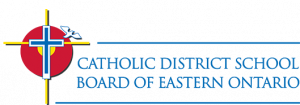Primary Assessment and Intervention
Our Board has an approach to primary assessment which allows for different levels of assessment and intervention depending upon the needs of the student. As a result, the number of primary students receiving assessments increased dramatically, which also includes students with less severe learning disabilities. Furthermore, our S-LP team’s development and use of an Oral Language and Early Literacy Assessment has facilitated teacher’s ability to identify the learning strengths and needs of the students, effectively group students for differentiated instruction, and link results to classroom programming. Use of the Oral Language and Early Literacy Assessment has also supported teacher’s abilities to communicate the literacy achievement of students to parents/guardians. We continue to support schools and encourage them to work as a team in collecting and reviewing student assessment data, developing intervention groupings, and implementing strategies based upon students’ learning profiles.
Key Objectives
- Reduce wait times for students in JK-Grade 4 requiring professional assessments.
- Enhance teacher capacity to provide effective programming for students provided with professional assessments.
- Improve literacy for students provided with professional assessments.
- Sustain assessment process improvements for the long term.
Approach to Primary Assessment
Grade 1 and 2 Oral Language and Literacy Assessment
Our Speech and Language Pathologists have developed a comprehensive research-based assessment protocol to provide teachers of students struggling with early reading. The Oral Language and Literacy Assessment evaluates all components of word level reading, including phonics, phonemic awareness, decoding, encoding, phonological memory, and rapid automatic naming. The assessment also comprehensively evaluates the students’ receptive and expressive oral language skills. School teams have been provided with various levels of research-based professional development in the areas of word level reading, including school team in-services, in-class training, and full class screening.
Early Language Support-Building Capacity
The Speech-Language Pathology team has developed a series of in-services geared toward educators of early language development and learning. These in-services are in the areas of early language stimulation, language for learning, use of books to promote language development, communicating with children with Autism Spectrum Disorder, and augmentative communication.
Benefits of Professional Collaboration
Professional collaboration with primary teachers and school staff provides opportunities to review and discuss educational assessment data, new and effective intervention strategies, and questions or concerns regarding students’ learning profiles.
During these meetings, Speech and Language and/or Psychology staff members review the assessments created for identified students and support school teams in deciding which students may benefit from updated educational assessment and/or further professional assessment. Teachers report that networking sessions with Psychology and Speech-Language Pathologist staff members has expanded their repertoire of educational assessment tools and has enhanced their ability to score and understand the results of data specific to the students, which is resulting in noticeable improvements in student achievement.
Enhancing Learning
Professional collaboration with grade two teachers enhances their ability to identify students at-risk of developing delays in literacy achievement. Teachers have also been provided with training on new and innovative intervention strategies for students with reading and writing difficulties.
Accomplishments
- The number of K- 4 students who required and received an assessment in the 2020/2021 school year was 279 of the 357 total assessments completed. This was 2.11% of the Board’s total population.
- Having the Speech and Language Pathologist complete the Grade 1 and 2 Oral Language and Literacy Assessment results in reduced wait times for professional assessment. Student’s learning needs are identified earlier, and schools can address gaps in literacy achievement before students enter the junior division.
- Teachers report that they have acquired tremendous professional development from working collaboratively with members of the Special Education Department. Teachers also reported that the Oral Language and Early Literacy Assessment took the “guess work” out of choosing strategies and making modifications to educational programs within the classroom.
- Parent feedback indicates that they greatly appreciate the hierarchical approach to assessment, beginning with consultation on classroom-based measures and only progressing to professional assessment measures when deemed necessary.
- Parents also find the Oral Language and Early Literacy Assessment easy to understand and could readily identify their child’s strengths and needs.
Sustainability
- Literacy improvements are monitored by administration of educational assessment measures. Grade Three and Grade Six EQAO results for our previously identified primary students are also reviewed to ensure improved literacy achievement over time.
- Consultants support and facilitate the educational interpretations and utilization of the Oral Language and Early Literacy Assessment.
- Ongoing professional development opportunities will be provided for primary teachers and school teams to review educational assessment measures, to provide information regarding new and effective classroom intervention strategies, and to address any questions that arise.
Sharing with Parents
- Teachers contact the parents/guardians of students that are struggling with literacy skills (e.g., reading, spelling, writing, etc.) and review the results of educational assessment data that they have collected, as well as relevant Board-Wide Assessment information. With parental consent, a member of the speech language and/or psychology team meets with the classroom teacher/school team to review educational data and provide recommendations for classroom programming.
- If further professional assessment would be beneficial, then parents are contacted by school staff and a member of psychology department to obtain written consent. Explanation of the reasons for further assessment and the types of assessment measures that would be completed are provided.
- Feedback from parents revealed that the Oral Language and Early Literacy Assessment facilitated their understanding of their child’s learning strengths and needs. They also reported that the intervention strategies provided in the feedback sessions were concrete and specific to their child and were often easy to implement in the home environment.
